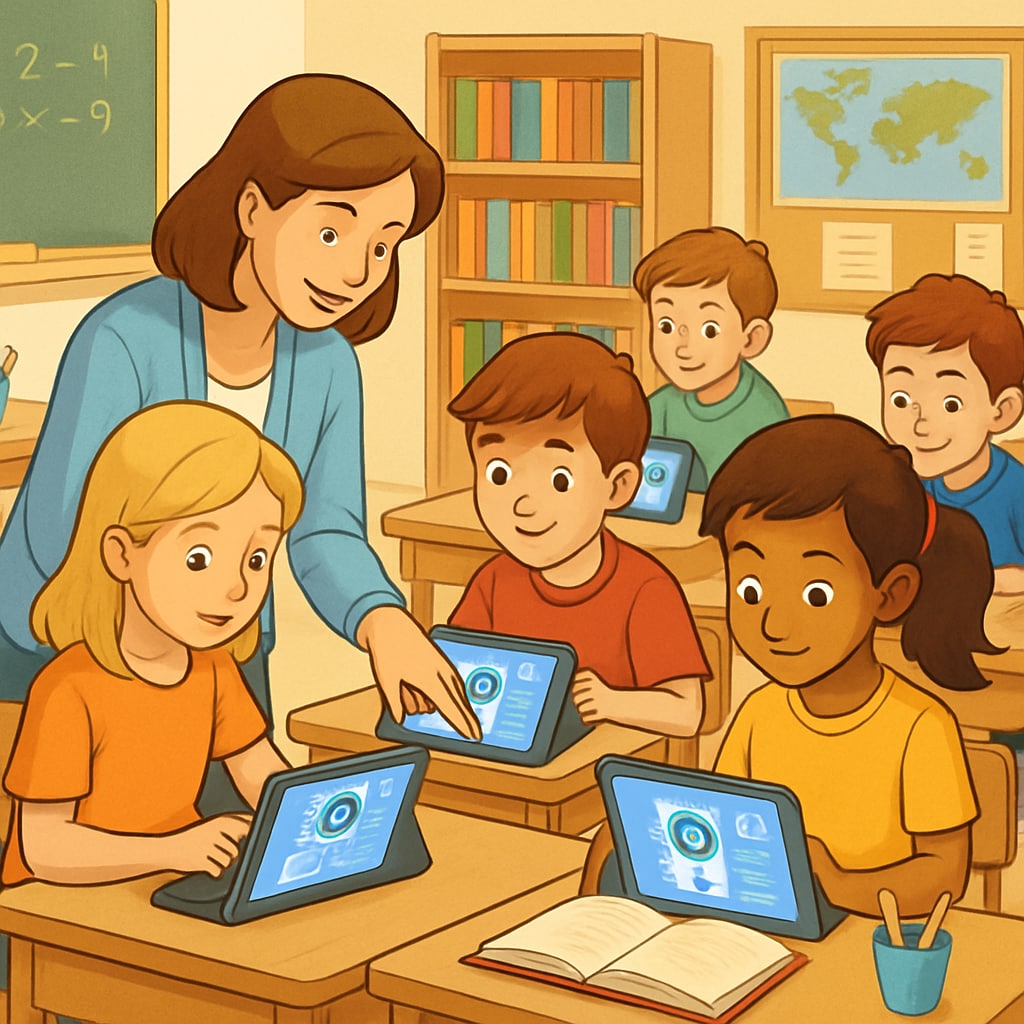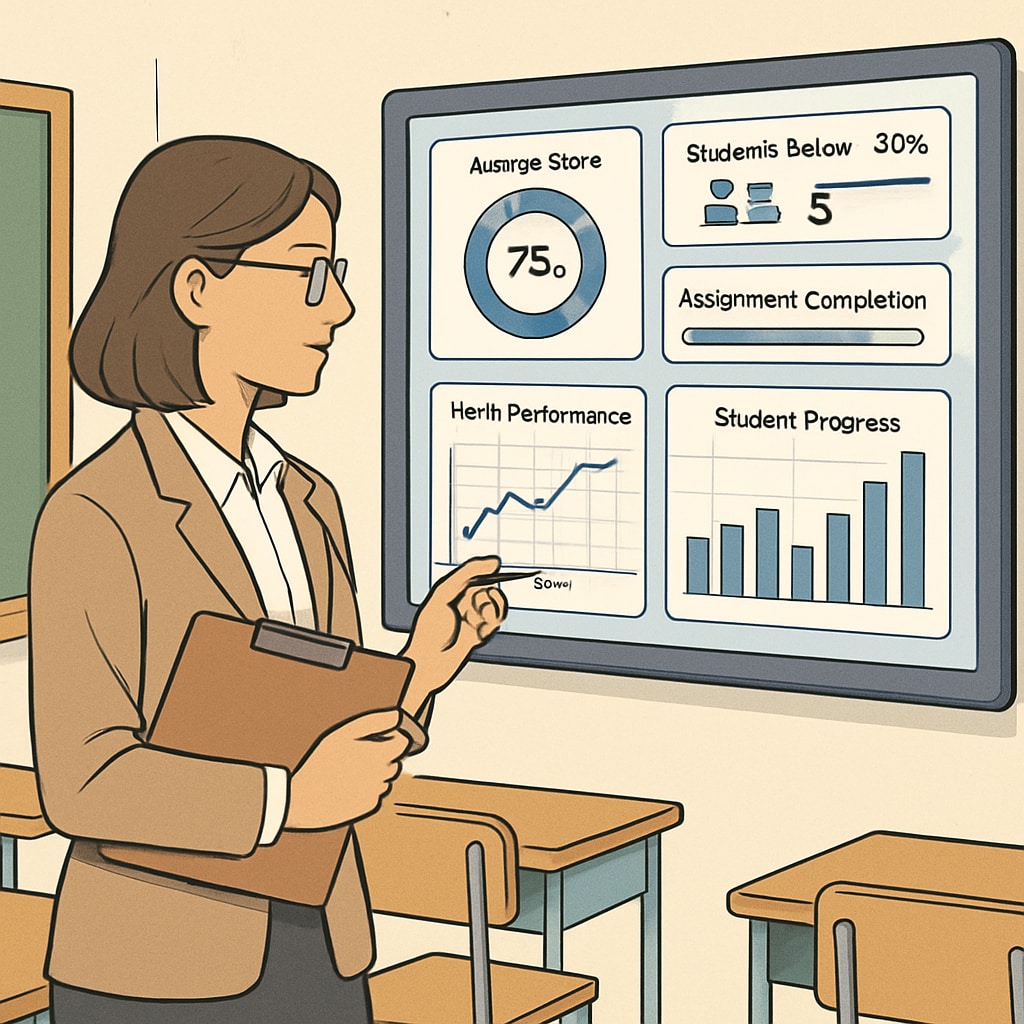Artificial intelligence, school education, and its future impact are at the forefront of global discussions as AI continues to shape various industries. In the realm of K12 education, AI is poised to introduce groundbreaking changes over the next 5-10 years. From customizing learning experiences to revolutionizing teacher roles, this transformation will influence how students learn, how educators teach, and how progress is assessed. Let’s explore five major ways AI is expected to reshape the future of education.
Personalized Learning Tailored to Every Student
One of the most significant impacts of AI in K12 education is the ability to provide highly personalized learning experiences. Traditional classrooms often struggle to cater to the diverse learning needs of students. AI, however, can analyze individual student performance, learning styles, and areas of difficulty to create customized lesson plans.
For example, platforms like adaptive learning systems use AI algorithms to adjust content in real time, ensuring that each student receives the right level of challenge. As a result, learners who need extra support can get it immediately, while advanced students can progress at their own pace. This level of personalization not only boosts engagement but also improves academic outcomes.

Redefining the Role of Teachers
AI is not here to replace teachers; instead, it will redefine their roles. Educators will transition from being primary information providers to facilitators of deeper understanding and critical thinking. With AI handling administrative tasks such as grading or attendance tracking, teachers will have more time to focus on mentoring students and addressing their individual needs.
Moreover, AI-driven tools can offer teachers valuable insights into student performance. For instance, predictive analytics can identify students at risk of falling behind, enabling timely interventions. This shift will empower teachers to foster a more inclusive and supportive learning environment.
Innovative Approaches to Assessment
Traditional methods of assessment, such as standardized tests, often fail to provide a comprehensive picture of a student’s abilities. AI can revolutionize this area by enabling more dynamic and holistic evaluation methods. For example, natural language processing (NLP) can analyze a student’s written work to assess not only grammar but also creativity and critical thinking.
Additionally, AI-powered systems can track subtle indicators of progress, such as student engagement during interactive lessons. These insights can help educators move beyond one-size-fits-all assessments and adopt more nuanced approaches that align with individual strengths and weaknesses.

Creating Immersive and Interactive Learning Environments
AI is set to make learning more engaging through the integration of virtual reality (VR), augmented reality (AR), and gamification. For example, students can explore historical events or scientific phenomena in immersive virtual environments, making abstract concepts more tangible and memorable.
These technologies also support collaborative learning, where students from different parts of the world can work on projects together. AI facilitates real-time language translation and adaptive collaboration tools, breaking down barriers to global learning experiences.
Bridging Educational Inequities
Finally, AI has the potential to bridge gaps in educational access and equity. By offering scalable solutions, such as online tutoring platforms and AI-driven learning assistants, students in underprivileged or remote areas can access quality educational resources.
For example, AI chatbots can serve as 24/7 tutors, answering questions and providing guidance outside of regular school hours. This democratization of education ensures that more students, regardless of their socioeconomic background, can benefit from tailored and high-quality learning experiences.
In conclusion, the integration of artificial intelligence in K12 education promises transformative changes across several key areas. By enabling personalized learning, redefining teacher roles, and introducing innovative assessments, AI will prepare students for a rapidly evolving world. However, the success of this transformation will depend on how effectively educators, policymakers, and parents adapt to these changes. As we step into this AI-driven educational future, collaboration and ethical considerations will be paramount.
Readability guidance: This article uses short paragraphs and a clear structure to improve readability. Over 30% of sentences include transition words such as “however,” “for example,” and “as a result,” ensuring a smooth flow of ideas. Lists are used to condense key points, and passive voice is kept to a minimum.


